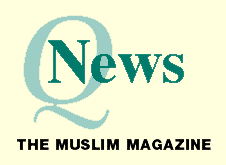 that the next world is more important than this one." He was totally what
he taught in this respect, and his approach of 'amal bi 'ilm, "living
what one knows" was also something I later sought to preserve in my translation.
that the next world is more important than this one." He was totally what
he taught in this respect, and his approach of 'amal bi 'ilm, "living
what one knows" was also something I later sought to preserve in my translation.
www.masud.co.uk > Shaikh Nuh Ha Mim Keller
I began translating Reliance of the Traveller in Jordan, out of personal need for a shari'a manual, to know and practice Islam in my own life. Making it available to others was an afterthought that came to me after I had set out to produce a work in which I could look up the questions that I needed to know without having to memorize it all.
I had moved to Jordan in 1980, and lived near Amman in Suwaylih, with many students and teachers of the University of Jordan's shari'a college. That first year, I heard a lot of well-meaning religious advice that one might have preferred to know rather than be told, a perhaps not unfamiliar feeling to many new Muslims. During this period I began to translate the meanings of the Qur'an using other English translations, and then read through the Muhammad Muhsin Khan's interpretation of Sahih al-Bukhari, trying to record every Islamic ruling I could find in the hadith. In the end, I realized that there was a tremendous number of questions in my life that I did not have Islamic answers for.
At the end of summer 1981 I moved to Huwwara, a village in the north of Jordan, both to improve my spoken Arabic and to work on a master's degree in educational psychology while teaching English at the University of Yarmouk, in nearby Irbid. The move to the north led to my meeting people who knew traditional Islamic ulama in Damascus, among them, Sheikh 'Abd al-Wakil al-Durubi, who I made the acquaintance of in his bookshop off the courtyard of the Darwishiyya mosque, where he was imam.
In Sheikh 'Abd al-Wakil, I felt I had found someone who really knew Islam, and he was the one who eventually inspired me to try to translate a fiqh manual. I had been a commercial fisherman in the North Pacific for seven seasons, and I remembered a book the captain used to keep in the wheelhouse near the charts, a book of bearings, with the precise compass directions between one point of land and another in Alaskan waters. This was the sort of work I hoped to produce in shari'a, a book that I could open up and find accurate, substantive ethical knowledge to apply in my life.
Sheikh 'Abd al-Wakil had such knowledge, and I came to produce a book that would try to represent his kind of traditional learning. In the following eleven years of my association with him, I never asked him a question that he didn't know the answer to, and I never asked him why he said so except that he would produce a text for it from a recognized shari'a work. It was something I had not been aware of before. When one meets a universsity professor of shari'a, one gets the impression of a senior student who is but more widely read than the students he teaches; but when one meets a traditional alim, one gets the impression of someone who knows the actual content of the shari'a by having learned and memorized, in a word, someone with 'ilm or "knowledge."
A second difference was one of attitude. Traditional sheikhs like Sheikh 'Abd al-Wakil impressed me deeply as Muslims, men whose concept of spirituality was to learn the divine command, hold it absolutely sacred, and to do their utmost to live it, outwardly and inwardly. They had apparently taken this attitude from the living example of their own teachers, and so on, back to earliest times. For example, Sheikh 'Abd al-Wakil was a genuinely humble man, not out of ignorance of his level of learning (which was arguably above that of a mufti), but rather because Allah had ordered him to be humble.
I once made
a remark to him about someone who gave one of the notoriously lax fatwas
of the present century, saying that one had to respect his opinion, since
he was an alim. "An alim?" he said, looking incredulous. "The first thing
an alim knows is that the next world is more important than this one." He was totally what
he taught in this respect, and his approach of 'amal bi 'ilm, "living
what one knows" was also something I later sought to preserve in my translation.
that the next world is more important than this one." He was totally what
he taught in this respect, and his approach of 'amal bi 'ilm, "living
what one knows" was also something I later sought to preserve in my translation.
In autumn of 1982, I took the Shafi'i fiqh manual Kifayat al-akhyar (The sufficiency of the good) to Sheikh 'Abd al-Wakil and asked him what he thought of translating it. He said that it often mentioned several positions on an issue without telling which was the most reliable for fatwa. He suggested instead a copy of `Umdat al-salik (Reliance of the Traveller), and I bought it from him. Working through the translation, the knowledge-based shari'a approach captured my imagination, and I was to add several appendices on questions not treated in the text, including biographies of all the scholars mentioned, not only to help Muslims know their scholars, but also to clarify, by actual examples, the difference between the present level of Islamic scholarship and the past.
www.masud.co.uk | More by same Author
 |